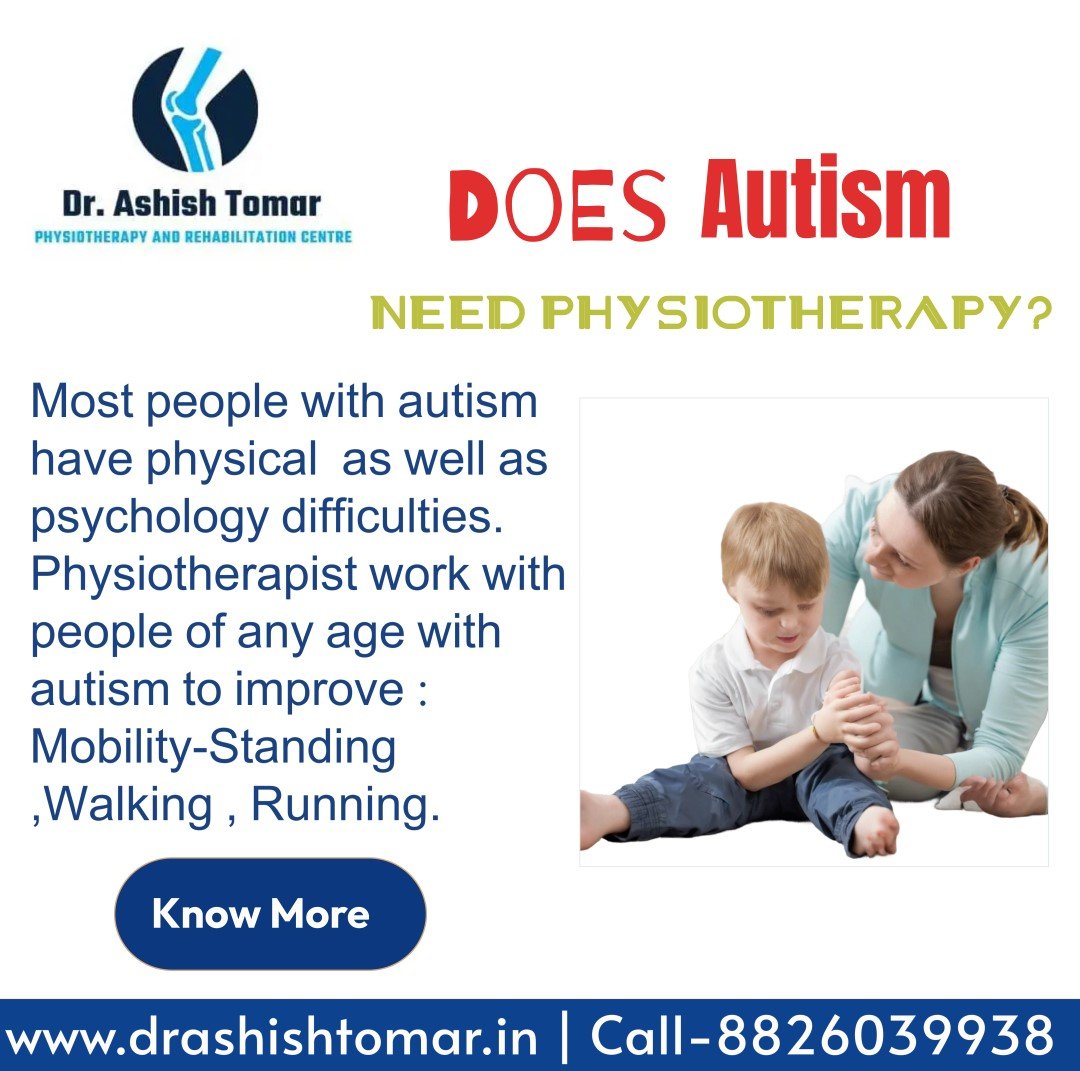Does Autism need Physiotherapy?
pHywel_login2024-08-23T12:02:03+00:00
Autism, also known as Autism Spectrum Disorder (ASD), is a complex neurodevelopmental condition that primarily affects social interaction, communication, and behavior. While autism is often associated with cognitive and emotional challenges, it is important to recognize that individuals with autism may also experience a range of physical challenges. This is where physiotherapy can play a crucial role in supporting the overall well-being of those on the spectrum.
Understanding the Physical Challenges in Autism
Individuals with autism may exhibit various physical symptoms that can affect their daily lives. These challenges can include:
- Motor Skills Deficits: Many children and adults with autism may have difficulties with both gross and fine motor skills. This can manifest as clumsiness, difficulty with tasks like writing or buttoning clothes, and challenges in participating in sports or physical activities.
- Balance and Coordination Issues: Poor balance and coordination are common among those with autism, making it difficult for them to engage in activities that require these skills, such as riding a bike or playing on playground equipment.
- Hypotonia (Low Muscle Tone): Some individuals with autism may have low muscle tone, leading to poor posture, fatigue, and difficulties in maintaining physical endurance.
- Sensory Processing Disorders: Sensory processing issues can affect how a person with autism responds to physical stimuli, such as touch or movement. This can make certain physical activities uncomfortable or overwhelming.
- Delayed Physical Development: In some cases, children with autism may experience delays in reaching physical developmental milestones, such as crawling, walking, or running.
How Physiotherapy Can Help
Physiotherapy is not a cure for autism, but it can be an essential component of a comprehensive care plan. Here’s how physiotherapy can benefit individuals with autism:
- Improving Motor Skills: Physiotherapists work on enhancing both gross and fine motor skills through targeted exercises and activities. This helps individuals with autism gain greater control over their movements, improving their ability to perform daily tasks.
- Enhancing Coordination and Balance: Through specialized exercises, physiotherapy can help improve balance and coordination, making it easier for individuals with autism to participate in physical activities and navigate their environment safely.
- Strengthening Muscles and Increasing Endurance: For those with low muscle tone, physiotherapy can help build strength and endurance, leading to better posture, increased energy levels, and improved physical health.
- Promoting Physical Activity: Regular physical activity is crucial for overall health, and physiotherapy can encourage individuals with autism to engage in exercises that are both enjoyable and beneficial. This can also help reduce anxiety and improve mood.
- Addressing Sensory Issues: Physiotherapists can incorporate sensory integration techniques into their sessions, helping individuals with autism become more comfortable with physical sensations and movements.
A Holistic Approach to Autism Care
At Dr. Ashish Tomar Physiotherapy Clinic, we understand that every individual with autism is unique, and their needs vary widely. That’s why our approach to physiotherapy is highly individualized, focusing on the specific challenges and goals of each person. Our team is dedicated to creating a supportive environment where individuals with autism can thrive physically, socially, and emotionally.
While physiotherapy is just one aspect of autism care, it plays a significant role in improving the quality of life for many individuals on the spectrum. By addressing the physical challenges associated with autism, physiotherapy can help individuals achieve greater independence, confidence, and well-being.
For more information on how physiotherapy can benefit individuals with autism, visit our website at www.drashishtomar.in.
#AutismSupport #PhysiotherapyForAutism #DrAshishTomarPhysiotherapyclinic #AutismCare #PhysicalTherapy #childphysiotherapy #pediatricphysiotherapist.

Leave a Reply